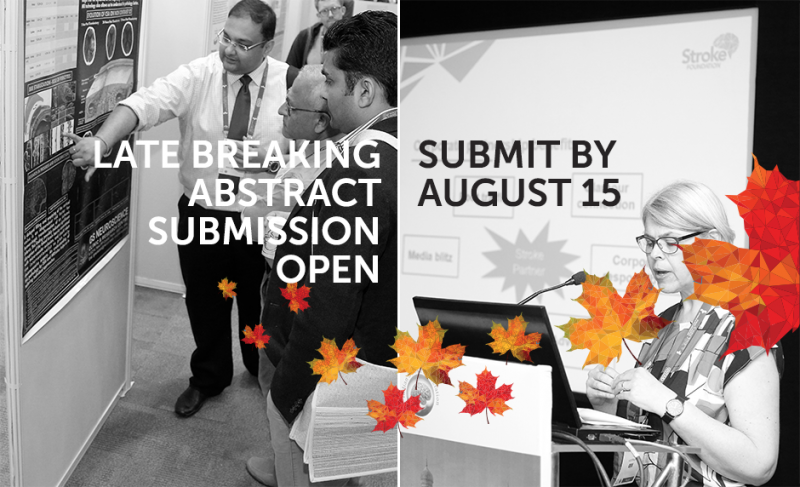
Jul 20, 2018
The World Stroke Congress 2018’s late breaking abstract submission is now open. Don’t miss this last opportunity to be part of this year’s program! Share your work now, and get valuable feedback from colleagues and leaders in the field, opportunities for collaborations and ideas for future research. Review the topics and the guidelines, and submit your abstract today.
The deadline for submission is August 15. Find all the information here.
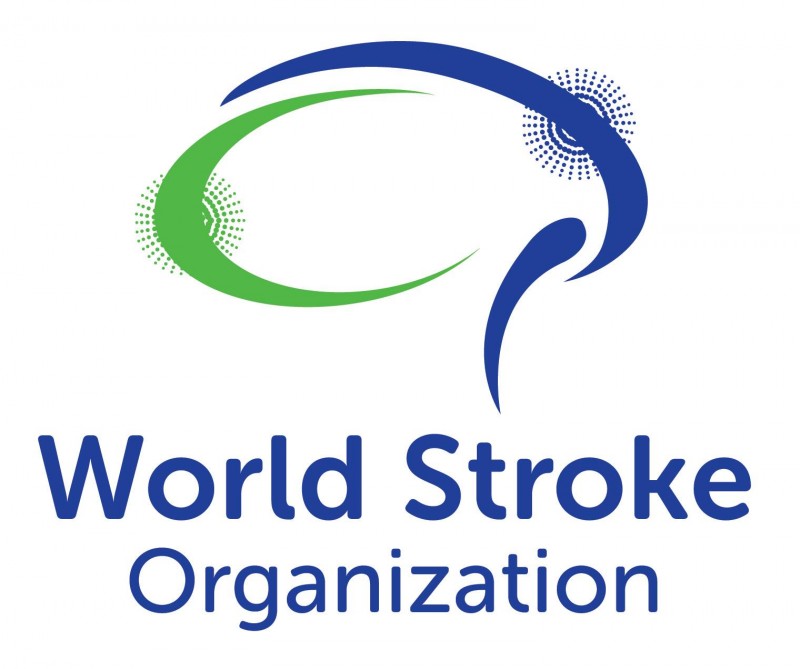
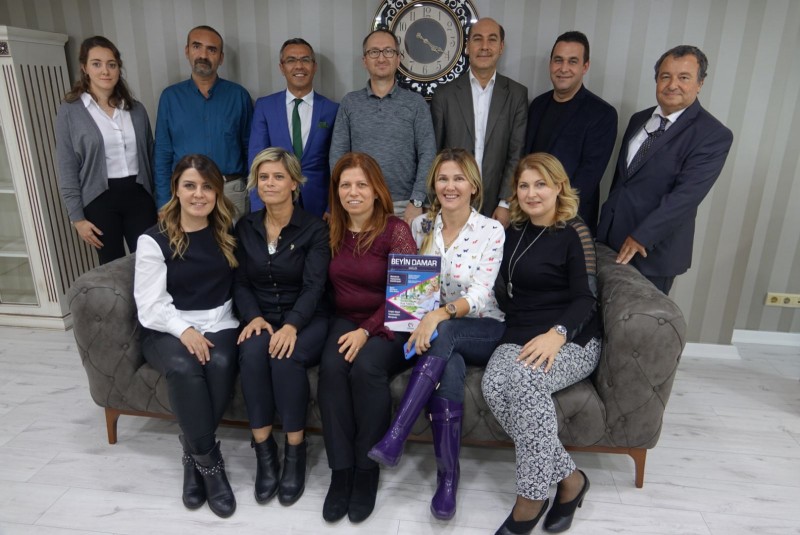
Jul 17, 2018
According the Turkish Statistical Organisation, one person dies every 14 minutes because of stroke in Turkey and 40.000 people died of stroke in 2017.
As much as these data seem horrifying, there is a hope for change. Since recently, there is a stroke support organisation in Turkey, dedicated to raising awareness and helping stroke survivors and their families. The organisation is called BEYINDER and since December 2017 it is a full member of SAFE. We used the opportunity to ask some questions to the Board of this organisation, made of medical experts whose enthusiasm led to forming the patient support organisation and joining SAFE. Below are the answers sent to us by Prof. Derya Uluduz from Istanbul University, Cerrahpasa School of Medicine, on behalf of the whole Board of the BEYINDER organisation.
1. How and when was your organisation BEYINDER formed?
In November 2015, we participated one of the SAFE meetings on behalf of Turkish Neurological Society and we were very impressed about what SAFE trying to do. In fact, as Turkish stroke neurologists we were doing many acitivities but all were based on individual efforts. In this meeting we had the feeling that we need to have a patient society to influence and extend to all country and we should be a member of SAFE organisation. SAFE was doing enormous work and we needed to be part of this. People in SAFE were so friendly, they encouraged us for this and tried to explain the process step by step. Especially I should thank to dear Sarah Belson, Marina Charalambous, Pnina Rosenzweig and Anita Arsovska. I appreciate them for their encouragement and motivation. We first tried to form the organisation under the auspices of Turkish stroke society but the problem was one third of the board should be made up from stroke survivors, so this could not be done. We need to form a separate non-profit organisation. We tried to find patients who can participate to this organisation and one of our board member suggested to provide us an Office place for the organisation. Another board member who was our patient was a certified public accountant who knows the paperworks for registration process. We provided a sample constitution form from Sarah Belson to arrange ours and at the end BEYINDER was formed in August 2017.
2. Are you covering with your activities the whole country or some specific regions?
We are covering the whole country. We are in contact with all stroke centers in order to reach more stroke patients. The main office of the society is in Istanbul. Our future plan is to open branch offices in some other cities. Also we want to include family physicians in primary care to our organisation and collaborate with them.
3. What is the situation with stroke in Turkey, how many new strokes do you have per year and is the level of treatment at a satisfactory level, in your opinion?
Even the epidemiological studies are limited in Turkey, the incidence of stroke is high and it is increasing even in young population. The incidence for ischemic stroke was about 119/100.000 in 1990 and was 134/100.000 in 2010, for hemorrhagic stroke it was 32/100.000 in 1990, and 43/100.000 in 2010. Although mortality rate is decreasing over the decades, stroke is still the second leading cause of death in our country. According the Turkish Statistical Organisation, one person died every 14 minutes because of stroke in Turkey and 40.000 people died with stroke in 2017.
The population does not have enough knowledge and are not aware of the acute stroke treatment and primary/secondary prevention. But the good news is that for 2 years Turkish Ministry of Health and Social Security institution have started to work hard to enhance the acute stroke treatment strategies and facilities in all over Turkey. For primary prevention, public service announcements on television and billboards around country advice people to stop smoking, control blood pressure and increasing physical activity. But we still dont have enough well organised stroke centers for acute treatment and transportation systems are still big problem in big cities for early management in stroke. Neurorehabilitation facilites are generally limited to big cities mainly due to lack of facilities and qualified person in stroke rehabilitation. In big cities stroke survivors can get benefit from the govermental rehabilitation centers or physical therapists are able to visit patients at their homes if necessary. We need to increase the awareness of primary and secondary prevention in stroke and force the goverment to increase the facilities and qualified person in stroke. Another problem is mainly physicians hesitate to prescribe anticoagulation due to side effects in patients with atrial fibrillation leading to stroke.
4. How is your organisation engaged in raising awareness of stroke and what are you preparing for the World Stroke Day, on 29th October this year?
After being a member of SAFE organisation we have continued our attempts for the awareness of stroke under the umbrella of SAFE. First we translated and prepared the posters about the risk factors of stroke and hanged them on the most seen places of clinics and outpatient clinics of neurology at several hospitals around the country. By this way, the patients admitted with any neurological complaints as well as the stroke survivors and their relatives had been able to learn the risk factors of stroke which is important for the primary and secondary prevention.
We have begun to publish a free public magazine quarterly named BEYİNDER which concerns with all about stroke, current knowledge of risk factors and important points about stroke, healthy diet, physical exercise, ways to increase quality of life after stroke, and etc.
On World Stroke Day some of our board members attended TV programs about stroke. On the 2018 European Stroke Awareness day we held an organisation in a big research hospital inviting the stroke survivors and their relatives. A stroke neurologist gave a talk about the risk factors, primary and secondary prevention. A physical therapist demonstrated some exercises for rehabilitation. In the social programme, after the lunch we went to the garden of the hospital and flied many colourful balloons to the sky.
5. What are the future short term plans for BEYİNDER?
– We will revise our website including the list of all stroke neurologists in Turkey, so stroke survivors will be able to reach a stroke specialist close by. People will have chance to ask questions through website contact area and get the answers from the experts.
– Patient education school for stroke survivors and public will be held twice a year. Each will be at different hospitals with different topics of stroke.
– In September, we are going to hold a garage sale and planning to sell new and vintage clothes, furniture and different kind of donated objects together with some of our patients. Our quarterly public magazine will be still published.
– If we can solve the financial part, one of our aim is to hold the first national stroke. We are not sure if we can manage this in the World stroke day period but, the congress will be without any charge and approximately 100 stroke survivors and one relative will be invited. During 2.5 days experts will give educations for primary prevention and secondary care, rehabilitation, cognition and increasing quality of life and their relatives how to combat with patients problems after stroke.
– On the World Stroke Day, on 29th October, we are planning to visit some schools to engage and educate the pupils on stroke in an enjoyable way. Also we plan to do visit the Ministry of Health and talk about the problems and needs of stroke survivors in Turkey. In one of our hospitals we will have a party for stroke day, increasing the awareness, we will invite stroke survivors and organize an arbor day in selected area in the hospital garden.
6. This year’s topic for the World Stroke Campaign is Life After Stroke. How would you describe the quality of life after stroke for people in Turkey?
Stroke rehabilitation and long term care became more important with the recent advances in stroke patients. One of the most difficult aspect of having a stroke is the adapting to life for both the patients and caregivers. Comprehensive stroke units provides multidisciplinary team approaches for acute treatment and rehabilitation for stroke patients. Although the number of dedicated stroke centers has been increasing in last years, there are still some regions without stroke centers in Turkey. In Turkey even the importance is known, rehabilitation program after stroke is mainly bounded by physical motor rehabilitation that is probably due to lack of qualified therapists specialized in speech therapy, swallowing therapy, occupational therapy and psychological therapy. Unfortunately, a very small number of centers in Turkey can provide such comprehensive therapies. Nevertheless, government is making efforts to educate and establish stroke rehabilitation team in recent years.
There is also lack of awareness about the importance of assessment of quality of life in stroke patients. Measurement of quality of life is not routinely used in many centers in Turkey. We also do not have enough time for assessing the quality of life in outpatient clinics due to high number of patients we should examine daily.
There is a lack of public awareness about the importance of rehabilitation after stroke. We are planning educational campaigns in order to increase public awareness about the importance of rehabilitation after stroke. Furthermore we should try to force the government to educate specialists and to increase the number of household stroke care system like home care service, transport of patients to the rehabilitation facilities. Also general health insurance covers a short term period of rehabilitation, that should be extended.
Our aim is to communicate with the government in order to increase the number of rehabilitation facilities and also most importantly specific rehabilitation centers for stroke patients. Turkish Ministry of Health provides home care service for only bedridden patients and in place health service for those who live in places such as rest home, prison or nursery. Also family physicians coordinate the home care services. Patient’s all health conditions are assessed and physicians decide the need for home care service. Then follow-up and treatment plans are made according to the result of assessment.
Although there are services that ensures medical care and rehabilitation for stroke patients, family members in the home environment are also very important for everyday living of stroke patients for whole life. According to the the family structure in Turkey, most people think that the care of patients and elderly people is under the responsibility of the family members. Because of this cultural customs relatives think this is a duty and caregivers in Turkey have many psychological comorbidities during patient care. Caregivers have many responsibilities such as physical rehabilitation help, feeding, hygienic care etc. In Turkey we don’t have day care facilities or long term inpatient hospitals for those people. There should be psychological support as well as social support for caregivers to increase their awareness about the importance of their role, reduce burden of care. One of the priority aims of BEYİNDER is to establish appropriate social support systems for the caregivers.
Physical conditions are not well established for disabled people in Turkey, but recently there is increasing awareness about the functional needs for daily living of disabled patients in the community forcing the goverment.
7. Your organisation is a full member of SAFE since December 2017. What made you join SAFE and do you consider it’s useful for organisation to cluster this way?
We perceived that there is a huge need for this kind of organisation in our country. We formed BEYINDER to help stroke survivors and to increase awareness of stroke in the community, we planned to be a part of an international organisation. Fortunately we became a full member of SAFE at December 2017. SAFE is an organisation aimed to driven-up stroke at European political agenda and to educate population about stroke primary and secondary prevention.
It was important for us to provide standardization of our organisation and become widespread to all country. Working together with SAFE like a team facilitate to accomplish the projects and more voices more ideas increase our awareness and perspective as well. SAFE works enormously, helps the organisations without any egocentrically without insisting just suggesting. This makes us feel good and work harder and harder for SAFE. SAFE is like a best teacher and we are trying to work hard and to do our best to get praise. SAFE is motivating us much. And also to learn more from an international organisation will increase our knowledge.

Jul 2, 2018
Research project led by the UKE: Clinical Trial in eight European countries has started
When stroke is treated by thrombectomy, blood clots are removed from the arteries of the brain with the help of a catheter in order to rebuild the blood circulation in the damaged area. So far, this therapy is only used regularly in specialized centres if the stroke had not already casued significant damage to the brain.
The research project TENSION, under the leadership of researchers of the Universitätsklinikum Hamburg-Eppendorf (UKE), will show whether patients affected by a severe stroke with already extended brain damage can also benefit from this treatment. In close collaboration with the Universitätsklinikum Heidelberg, the study has now started at 40 locations in eight countries. The project is funded by the European Union with a 6 million Euro grant.
Most strokes are caused by a blood clot (thrombus) which blocks a blood vessel in the brain so that parts of the brain can no longer be supplied with oxygen. The longer the vascular obliteration continues, the more brain tissue dies. Blood clots obstructing large brain arteries can be removed by endovascular treatment by introduction of a catheter starting from the groin into the arteries of the brain. This treatment, which is called thombectomy, is effective and has become standard of care for patients in whom only a few brain tissues are injured. Under these circumstances, patients have very good chances to live an independent and unimpeded life after a stroke. Whether this treatment can also help patients with severe strokes with already extended brain damage is still unclear. Therefore, these patients are currently not treated with thrombectomy in routine clinical practice.
“With our research project, TENSION, we aim to prove that patients with already extended lesions can also benefit from thrombectomy”, says Prof. Dr. Götz Thomalla, project Coordinator and lead-ing senior physician in the Clinic for Neurology of the UKE. “If our assumptions are true, the trial will provide evidence for effective treatment for a large number of patients with severe stroke and already extended brain damage.“
Clinical Study: 40 study sites, 714 patients
In the clinical trial, up to 714 patients who are admitted to a hospital with a stroke in one of the 40 trial sites will be enrolled. A criterion for inclusion in the study is that brain imaging should have already shown an extended area of damaged brain tissue around the affected blood vessel. Evalu-ation of the extent of the lesion will come from imaging techniques such as computed tomography and magnetic resonance tomography. “The correct evaluation of CT and MR images by the treating physician plays a crucial role here”, says Prof. Dr. Jens Fiehler, director of the Clinic of Neuroradiology at UKE and leader of the image core lab of the TENSION study and adds: “In order to guarantee a consistently high quality of image reading in all study sites, we have developed standardized training that must be passed all physicians who participate in the trial.”
Patients are randomly divided into two groups by: Both groups will receive normal medicinal therapy, but in addition, the second group will also have the clot removed by thrombectomy. After 90 days, the stroke patient’s degree of residual disability will be ranked by means of the usual scales used in stroke treatment. “The TENSION trial will answer the most urgent clinical question concern-ing the use of thrombectomy for treatment of stroke”, says Prof. Bendszus, Head of the Department of Neuroradiology at the University Hospital Heidelberg and Coordinating Investigator of the trial. “Such an interdisciplinary effort will also help us to improve the access to this effective treatment across Europe.”
The Clinical Trial is coordinated by the Universitätsklinikum Heidelberg, while the overall research project TENSION is led by the UKE.
Contact
Prof. Dr. Götz Thomalla
Klinik und Poliklinik für Neurologie
Universitätsklinikum Hamburg-Eppendorf (UKE)
Martinistr. 52
20246 Hamburg
Phone: 040 7410- 50137
thomalla@uke.de
Prof. Dr. Martin Bendszus
University Hospital of Heidelberg
Department of Neuroadiology
Im Neuenheimer Feld 400
69120 Heidelberg
Phone: +49 6221-56-7566
martin.bendszus@med.uni-heidelberg.de
Prof. Dr. Jens Fiehler
Klinik für Neuroradiologische Diagnostik und Intervention
Universitätsklinikum Hamburg-Eppendorf (UKE)
Martinistr. 52
20246 Hamburg
Phone: 040 7410- 55598
fiehler@uke.de

Jun 29, 2018
Written by Anita Wiseman │ First appeared on WSO blog
After sixty-two years of officially categorizing stroke as a Disease of the Circulatory System, the newly published WHO ICD 11, has correctly classified stroke as a Disease of the Nervous System
ICD 11 is a foundation document for health policy and treatment globally and the decision on stroke classification has been warmly welcomed by the World Stroke Organisation. WSO actively advocated for the change, arguing that positioning stroke as a disease of the brain will support global efforts to increase recognition of stroke and improve access to services and treatments that save lives and reduce post-stroke disabilities. Stroke was responsible for 14m deaths and 116 DALYS in 2016 alone, directing attention to the brain and what can be done to reduce premature deaths.
To find out more about why the WSO has made it a priority to achieve this change, I talked to Bo Norrving, Chair of the organization’s Global Policy Committee. Bo has also been chair of the Cerebrovascular Diseases group for the ICD 11 and is a member of the WHO Neurology Topical Advisory Group, chaired by Raad Shakir.
Why does it really matter that stroke is classified as a brain disease, not a disease of the circulatory system – aren’t the two closely related?
It’s true that there are close links between cardiovascular disease and stroke; many risk factors are shared and primary prevention will target both disorders jointly. We work closely with colleagues in the Non-Communicable Disease (NCD) and cardiovascular (CVD) sphere to advance our common prevention agenda.
The simple fact, however, is that when strokes happen, they happen in the brain.
Delivering stroke treatment early and efficiently with effective acute therapies such as thrombolytic therapy and thrombectomy, depends on the early recognition of symptoms from the brain and early actions to call an ambulance. This is why in many countries campaigns to increase public knowledge of stroke symptoms (like the FAST campaign) have been conducted. These campaigns are founded on in recognition that ‘time is brain’. Similarly, providing early treatment of transient ischemic attacks (TIAs), which are linked to stroke and are a significant contributing factor to dementia, depends on public awareness of the symptoms and rapid admittance to hospital.
The impact of delivering effective treatment for acute stroke – and the opportunity to prevent a stroke – present huge opportunities to reduce the global burden of disease and cannot be missed if we are to are to achieve global goals on NCD reduction. Thinking beyond prevention, understanding the role of the brain in residual stroke symptoms and disabilities from stroke is critically important to providing patients with effective long-term rehabilitation and support.
Classifying stroke under diseases of the circulatory system has kept stroke in the shadows where it couldn’t easily be seen or dealt with. We are delighted that this is no longer the case and that more light can be cast to the specifics of stroke and the opportunities we have to improve prevention and treatment.
How do you think this change will help with the achievement the global goal to reduce avoidable deaths from stroke?
Stroke is the second biggest killer and the largest single cause of disability worldwide and yet still struggles to get the policy attention and resources commensurate with its global impact. Identifying stroke as a disease of the brain and pulling all types of cerebro-vascular diseases into a single block in the ICD 11 will, we believe, guide policy attention to the right place and enable us to develop 21st century services for stroke.
Stroke is probably the best example there is of a non-communicable disease that is highly preventable and highly treatable. With the right focus and commitment to stroke we can make a massive impact on the achievement of global health and development goals .
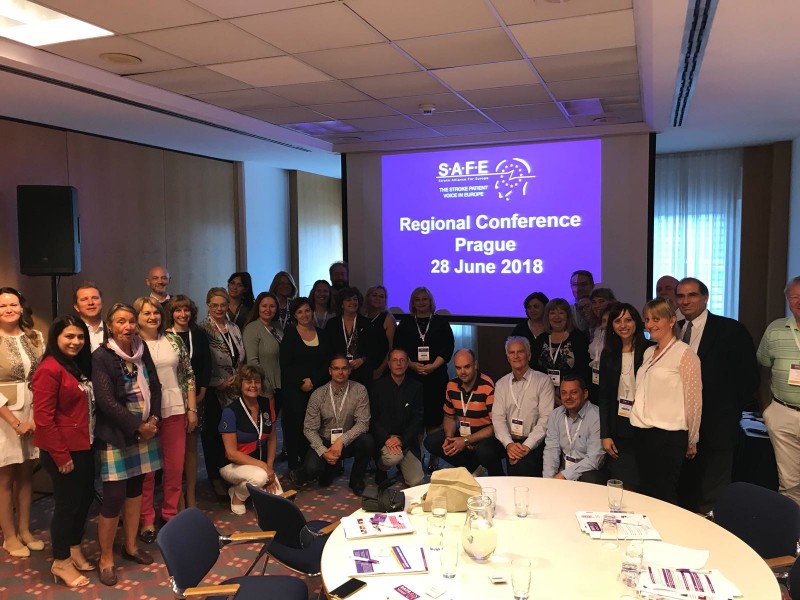
Jun 29, 2018
On 28th June 2018 SAFE held its third and final Regional Conference of 2018. This conference was attended by delegates from 18 stroke support organisations.
Apart from an interactive session about the SSOFT project, Angels Initiative, Stroke Action Plan for Europe and other SAFE projects, the delegates had an opportunity to present their national activities, same as in the previous two Regional Conferences in Madrid and Dublin.
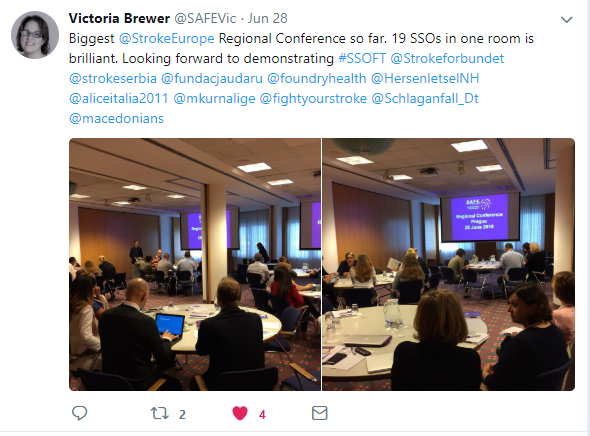 The fact that we had so many delegates made this Regional Conference different from the previous two, making it more similar to our Working Conference and the General Assembly.
The fact that we had so many delegates made this Regional Conference different from the previous two, making it more similar to our Working Conference and the General Assembly.
The Regional Conference Prague was chaired by SAFE Vice President Markus Wagner from German stroke support organisation Stiftung Deutsche Schlaganfall-Hilfe.
SAFE Board member Anita Arsovska from Macedonia chaired the afternoon session with presentations from our SSOs.
You can find albums with photos from all three Regional Conferences on SAFE Facebook page.
SAFE’s regional conferences continue to be sponsored by Boehringer Ingelheim, and we are grateful for their support.
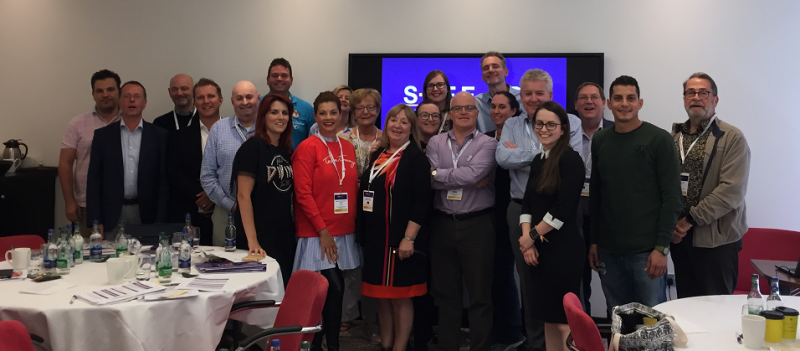
Jun 22, 2018
On 21st June 2018 SAFE held its second Regional Conference of 2018. This conference was attended by more than 20 delegates from UK, Ireland, Greece, Cyprus, Netherlands, Belgium, Germany and France.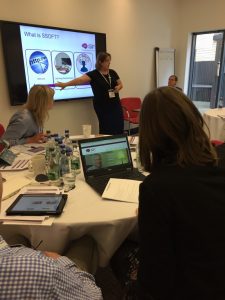
Once again, the SSOFT project was presented to our delegates, in a form of an interactive workshop.
This e-learning tool is available online at www.ssoft.info and can be accessed anywhere, by anyone with an Internet connection. It is designed to be compatible with multiple devices including computers, smart phones and tablets. The information is structured into six e-learning modules that cover information ranging from: introducing the key principles of an
SSO through the use of data to create effective messages, to approaches to developing positive and impactful public and health advocacy campaigns. The modules contain a mixture of videos, presentations and animations, ensuring that it is accessible for all, in particular stroke survivors.
Module 1, 2, and 3 are now available with modules 4, 5 and 6 being released between August and November this year.
SAFE President, Jon Barrick, presented SAFE’s success stories and projects from the past year, with a special focus on projects that are being developed in this year. The most important among them, the Stroke Action Plan for Europe was launched at ESOC 2018 in Gothenburg and in the EU Parliament in May 2018. SAFE is now working on a popular version of this comprehensive document, hoping to present it towards the end of the year. The popular version will be written in a lay-friendly manner and available for our members for further translation and dissemination, as per the Burden of Stroke Report in 2017.

One of the sessions was delivered by our sponsor, Boehringer Ingelheim, bringing updates and providing information on new developments with the Angels Initiative project.
There will be a new approach in this project and the target audience will be quite different to what we are used to in the stroke world. For more information and a sneak peek into the new branding, please visit www.angels-initiative.com and join their community.
The next SAFE Regional Conference and the final one for this year will be held in Prague on 28th June.
SAFE’s regional conferences continue to be sponsored by Boehringer Ingelheim, and we are grateful for their support.






 The fact that we had so many delegates made this Regional Conference different from the previous two, making it more similar to our Working Conference and the General Assembly.
The fact that we had so many delegates made this Regional Conference different from the previous two, making it more similar to our Working Conference and the General Assembly.





